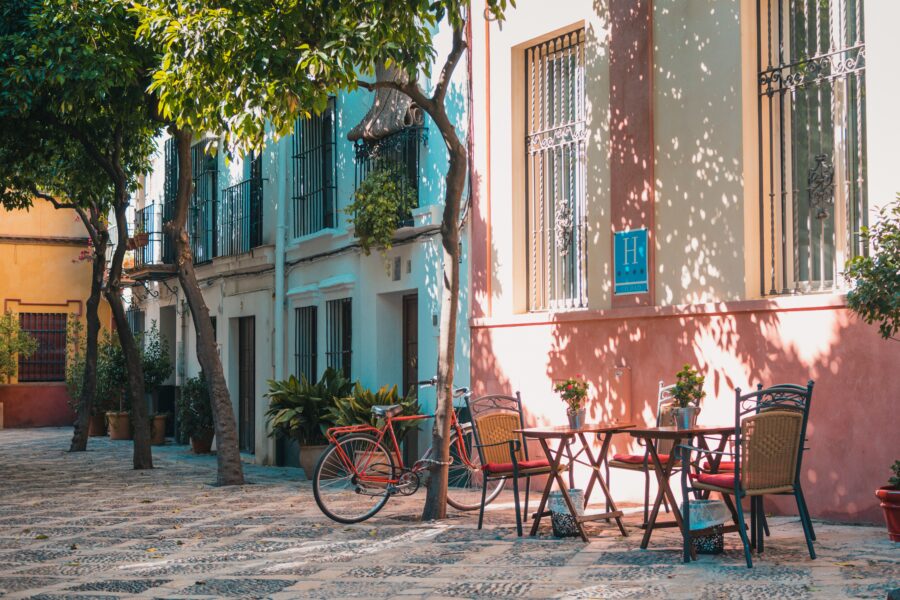
Spain is a fantastic place to live and has many benefits. The cost of living is lower than in many other Western European countries, and the weather is wonderful. However, there are still some things that you need to consider if you want to come here on a low budget. If you want to make moving to Spain on a low budget stress-free, keep reading.
Housing
Moving to a new country can be overwhelming. You need to find a place to live, learn about the best places for you, and then make sure that you have enough money saved up. Luckily, there are many options for housing in Spain, and each one has its pros and cons.
- Renting a house or apartment. This is the most common way of living in Spain. There are many different types of houses or apartments on the market. However, they all start at around €500 per month (unfurnished), with bills included. If you move to a rented apartment, consider moving only the necessary items to your new home. This will save you money and simplify the relocation process.
- Buying a house. Buying property is also very popular here because it is usually cheaper than renting one long-term (especially if you are staying longer than two years). However, this means that there is no option for moving later.
Transportation
Public transportation is great and affordable in Spain, but it is not comprehensive enough to get you everywhere you need to go. If you move here in autumn or warmer months, you will most likely take a walk or bike ride to most locations. You can also take the bus from one city center to another.
Biking is the most affordable way to get around in Spain. It gives you more freedom than public transport while also being cheaper than renting cars (and often free if your hotel offers rentals). The only problem with biking is that bicycle theft is extremely common.
Additional transportation costs you should consider are your moving costs. In order to handle a long-distance move without stress, Relosmart Movers suggest planning the move ahead of time. Moving on a budget can be difficult to manage, especially when relocating overseas. The best way the handle your finances during this time is to write down a list of your expenses. If there is a way to cut some of them, allow yourself enough time to organize and modify your plans.

Healthcare
Once you are settled in, it is time to look into healthcare. In Spain, it is free for all residents, and they have a good reputation for the quality of their public health services.
However, if you have an accident or another emergency outside of your home, you may need to pay for treatment at a private clinic instead. You can also get your teeth checked or see the dentist, but this does not come as part of the package deal. So, it will cost extra cash on top of what you already pay for healthcare as a resident.
The cost of medical care varies depending on where in Spain you live. Those who live in larger cities like Barcelona or Madrid will pay more than those living in smaller towns or villages along the coast, where prices tend to be lower overall (but still higher than in other European countries).
Food
Your relocation to Spain as a foreign country can be intimidating, especially when it comes to food. You may be used to eating out all the time, but doing so in Spain can get pricey. Fortunately, there are plenty of ways for you to eat cheaply and enjoyably while still sticking with your budget.
- Cook at home. Cooking for yourself is one of the best ways to save money on food in Spain. You will also learn how to prepare dishes that are different from what you are used to – and that is a good thing! It will help you expand your palate and open up new culinary possibilities.
- Buy prepared foods from local shops instead of supermarkets or chain stores whenever possible. These places often have higher prices because they exist solely as shopping destinations rather than places where locals purchase their groceries regularly (IKEA being an exception).

Tips for moving to Spain on a low budget
Living in Spain might not be affordable, but there are ways to keep your budget in line.
Another thing that you should not forget is to calculate your moving costs. Whether you plan to hire professional movers or handle a DIY move, you should make sure to create a budget plan. For example, if you want to make moving to Spain affordable, you can pack without professional assistance. If you reuse cardboard boxes for packing, you can cut some costs here.
This is just one of the budget-friendly hacks you can use. To save money during your relocation, you can also consider the following:
- Book the moving company a few months in advance
- Declutter and minimize your inventory
- Relocate only items you will need right after the move
- Pack by yourself – it will save you a lot of money
- Consider hiring movers during weekdays and the off-season

Conclusion
Moving to Spain on a low budget is possible if you know how to do it.
The key is finding out where your money can go furthest and working hard to stretch those funds as far as possible. This means making smart decisions about housing and transportation costs (both of which are lower in Spain than in most places).
Make sure to purchase food from local markets instead of supermarkets whenever possible, rather than going out for dinner at an expensive restaurant every night.